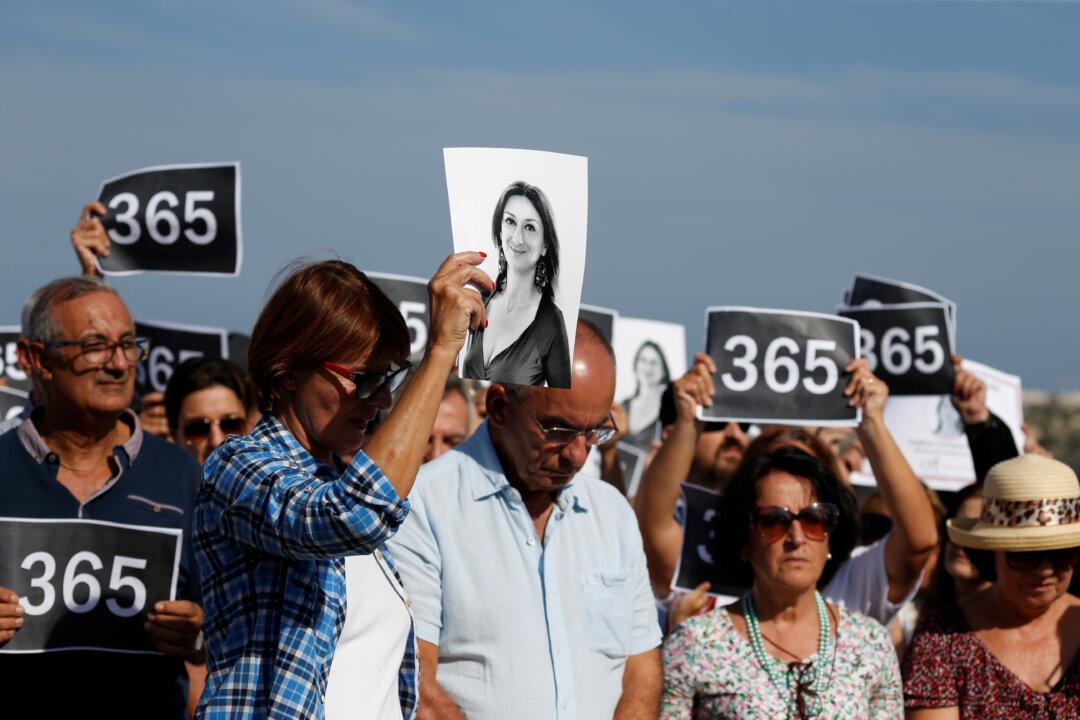VALLETTA—A year since its most prominent journalist was murdered, the tiny state of Malta has still not solved the mystery behind her death, or overcome the bitter division left by her legacy.
Daphne Caruana Galizia, 53, who penned an anti-corruption blog, was killed Oct. 16, 2017, when a bomb placed inside her car blew up as she left her home in the peaceful hamlet of Bidnija, near the capital Valletta.





